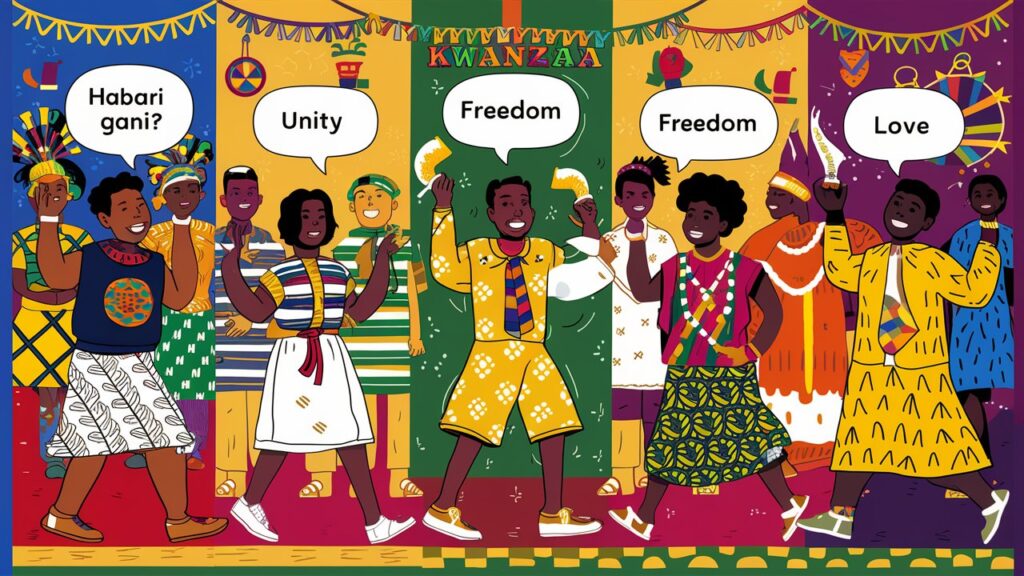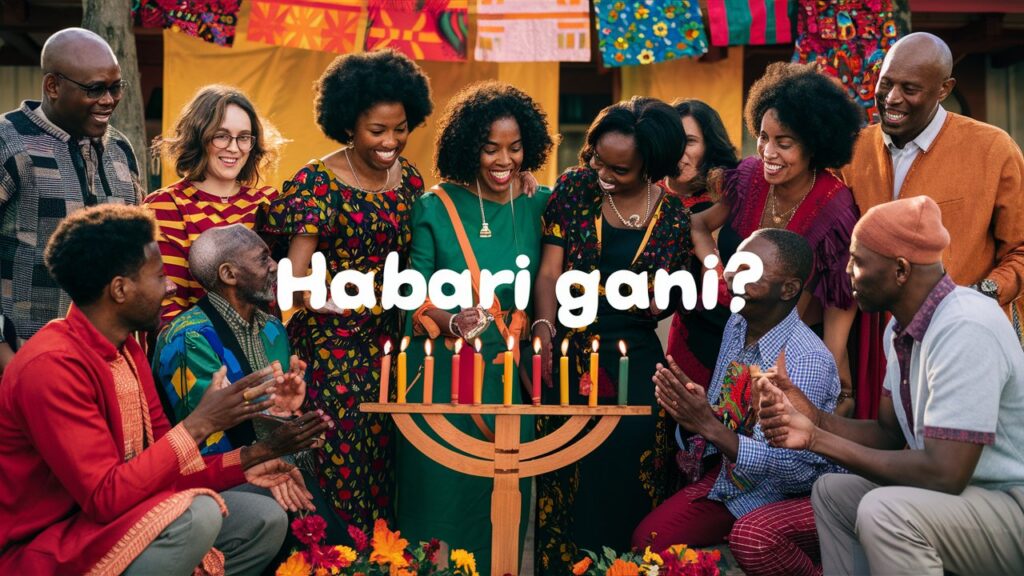H.G A Cultural Exploration
“Habari gani” is a Swahili phrase that translates to “What is the news?” However, its use extends far beyond a simple inquiry about current events. This phrase is a versatile greeting with deep cultural significance in Swahili-speaking communities. Let’s delve into its various applications and the richness it brings to social interactions.
A Common Greeting
In everyday conversation, “habari gani” is a standard English greeting, similar to “Hello, how are you?”. It’s used informally among friends, family, and acquaintances. This greeting expresses interest in someone’s well-being and daily happenings, fostering a sense of community and connection.

Typical Responses
Responding to “habari gani” depends on the context and the speaker’s feelings. Some standard replies include:
- “Nzuri sana, na wewe?” (Excellent, and you?)
- “Safi tu” (I’m good)
- “Sawa” (Okay)
These responses help to keep the conversation light and engaging, allowing for a natural flow of dialogue.

An Icebreaker
“Habari gani” also functions as an effective icebreaker. This phrase can ease any awkwardness when meeting someone for the first time or initiating a conversation. It opens the door for further discussion, making it a valuable tool in social settings.

Role in Kwanzaa Celebrations
During Kwanzaa, a week-long celebration of African-American culture and heritage, “habari gani” plays a unique role. Each day of Kwanzaa focuses on one of the seven principles (Nguzo Saba), and the greeting “habari gani” prompts the day’s principle. For example, on Ujima (Collective Work and Responsibility) day, the exchange would go:
- Leader: “Habari gani?”
- Everyone: “Ujima!”
This practice reinforces the principles of Kwanzaa and helps participants stay mindful of the values being celebrated.

Everyday Interactions
In day-to-day life, “habari gani” can be heard in various settings. For instance, two friends might exchange a greeting on the street:
- Friend 1: “Habari gani?”
- Friend 2: “Nzuri sana, na wewe?”
Or, a shop assistant might use it to welcome a customer:
- Shop assistant: “Habari gani?”
- Customer: “Safi tu, thanks.”
These interactions highlight the phrase’s versatility and its role in fostering friendly, polite exchanges.

Promoting Social Cohesion
“habari gani” promotes social cohesion by encouraging people to engage with one another. It reflects a cultural emphasis on community and mutual respect. Individuals contribute to a supportive and connected society by regularly asking about others’ well-being.

A Reflection of Cultural Values
The frequent use of “habari gani” in Swahili-speaking cultures reflects broader cultural values. It underscores the importance of community, empathy, and interpersonal connections. This greeting is not just a formality but a genuine expression of care and concern for others.

Teaching Swahili
For those learning Swahili, “habari gani” is one of the first phrases taught. Its simplicity and frequency make it an ideal starting point for language learners. Mastering this greeting helps learners build confidence and integrate seamlessly into Swahili-speaking environments.

Cultural Exchange
“Habari gani” also plays a role in cultural exchange. As people from different backgrounds learn and use this greeting, they gain insight into Swahili culture. This fosters mutual understanding and appreciation, enriching cross-cultural interactions.

A Phrase for All Occasions
” Habari gani” is a versatile and enduring phrase suitable for formal or informal settings. Its adaptability suits various social contexts, from casual conversations to cultural celebrations.
Also Read: Discover the Allure of Panama City Beach
Respect and Politeness
Using “habari gani” demonstrates respect and politeness. It shows that the speaker values the other person’s experiences and is interested in their well-being. This respect helps to strengthen social bonds and create a positive atmosphere.

Encouraging Openness
By asking “habari gani,” individuals encourage openness and communication. It invites others to share their news and feelings, promoting transparency and trust. This openness is crucial for building strong, meaningful relationships.
A Gateway to Deeper Conversations
While “habari gani” is often a casual greeting, it can also be a gateway to deeper conversations. Depending on the response, the conversation can naturally progress to more significant topics, allowing for a richer exchange of ideas and experiences.
Enhancing Social Skills
Regularly using “habari gani” helps individuals enhance their social skills. It teaches them to be attentive, responsive, and empathetic, which are valuable in all areas of life, from personal relationships to professional interactions.

A Symbol of Unity
In communities where Swahili is spoken, “habari gani” symbolizes unity. Everyone understands it as a shared expression, regardless of their background or status. This shared understanding helps to create a sense of belonging and togetherness.
Conclusion: The Power of a Simple Phrase
In conclusion, “habari gani” is more than just a greeting; it is a powerful expression of cultural values, social cohesion, and human connection. Its simplicity belies its depth, making it a fundamental part of Swahili-speaking communities. By using “habari gani,” individuals greet each other and reaffirm their commitment to community, respect, and mutual support.



